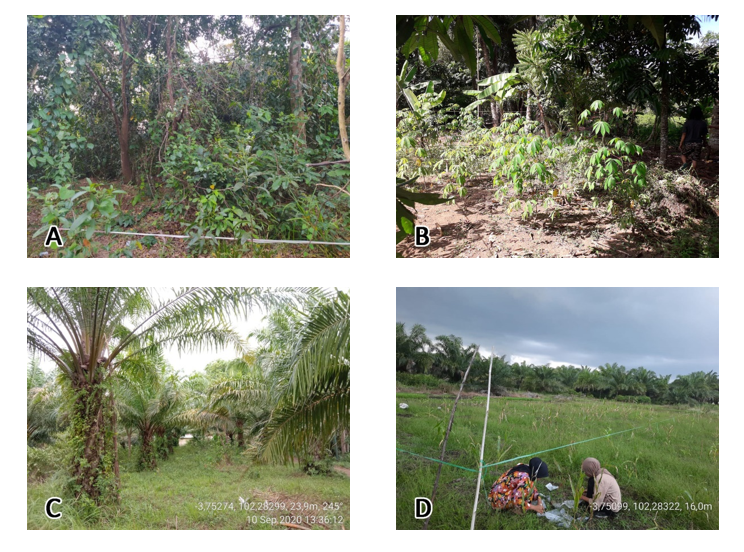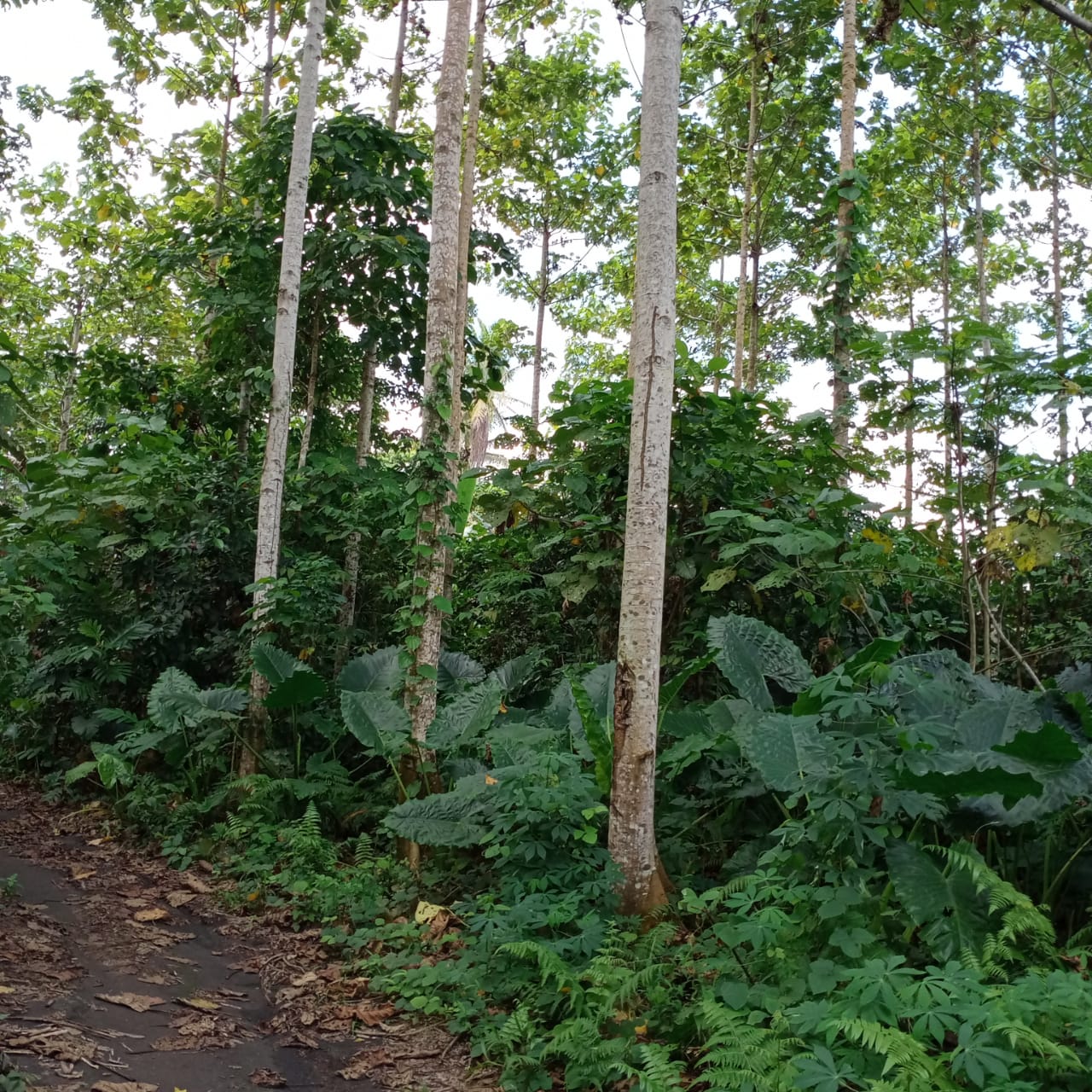Abstract
Peat swamp forest is an important pool of terrestrial carbon stock (C-stock). Therefore, research on change of C-stock and its economic value of peat swamp forest conversion to pulpwood industrial plantation forest is important. The objectives of this research are to know the change of C-stock on peat swamp forest conversion to pulpwood industrial plantation forest, and to get the carbon economic value of peat swamp forest and pulpwood industrial plantation forest. The result showed that conversion from logged over and secondary forest causing the decrease of C-stocks of 103.53 and 61.02 t ha-1 year-1, while conversion from degraded forest causing the increase of C-stocks of 22.47 t ha-1 year-1. REDD project on pulpwood industrial plantation forest from degraded land causing the increase of NPV of 20.21% and 51.13% for compensation prices US$ 9 and 12 tCO2-e-1. REDD project with conservation on secondary forest gave lower economic value than pulpwood industrial plantation forest at all compensation prices simulation, and REDD project with preservation logging gave higher economic value than pulpwood industrial plantation forest at compensation price US$ 12 tCO2-e-1. REDD project on logged over forest gave higher economic value than pulpwood plantation at compensation prices US$ 9 and 12 tCO2-e-1 (both on conservation and preservation logging scenarios).
Authors
RochmayantoY., DarusmanD., RusolonoT., & EliasE. (1). Perubahan Stok Karbon dan Nilai Ekonominya pada Konversi Hutan Rawa Gambut Menjadi Hutan Tanaman Industri Pulp. Jurnal Manajemen Hutan Tropika, 16(1), 18-26. Retrieved from https://journal.ipb.ac.id/index.php/jmht/article/view/3191
Jurnal Manajemen Hutan Tropika is an open access journal which means that all contents is freely available without charge to the user or his/her institution. Users are allowed to read, download, copy, distribute, print, search, or link to the full texts of the articles in this journal without asking prior permission from the publisher or the author. This is in accordance with the Budapest Open Access Initiative (BOAI) definition of open access.



